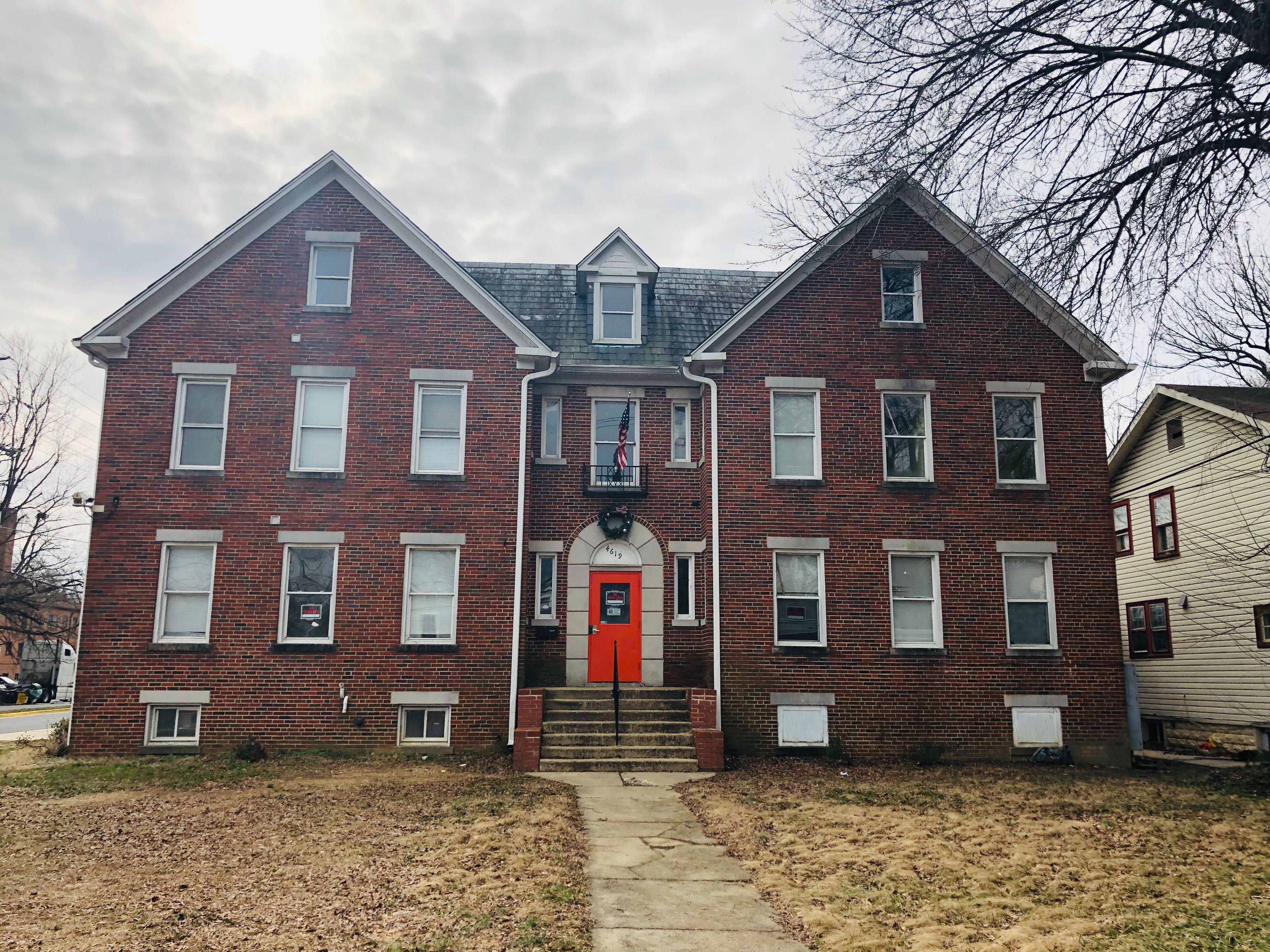Less than two months after 37 residents were evicted, the property at 4619 College Ave. was sold for $1.4 million.
The most recent residents of the property — many of whom belonged to the University of Maryland chapters of the Tau Epsilon Phi and Sigma Nu fraternities — were evicted from the property on Oct. 19.
The property was originally going to be up for auction last month with an opening bid of $700,000, but a $1.4 million offer was made and accepted prior to the auction.
“We did our analysis and that’s what we thought it was worth, that’s what it was worth to us,” said Ilya Zusin, who is listed as the resident agent of ZS 4619, LLC, a limited liability company that purchased the property.
[Read more: College Park officials consider subsidizing security cameras for residents, businesses]
Zusin is the founder and president of Zusin Development, a Washington-based real estate development company that also developed the Landmark apartments. Zusin said architects are currently in the process of drafting plans for the renovation of the property and that the renovation would be “mostly cosmetic.”
Prior to the evictions, the property was purchased by landlord Tom Chen for $250,000 in 1997.
The property — known by many simply as “Complex” — was acquired by Midaro Investments 2016, LLC, in a May 2016 tax sale for $315,000. Tom Chen, the previous owner, lost the property in August after failing to pay nearly $10,000 in outstanding tax obligations from 2015.
The property has a history of code violations and condemnations, which were committed under Chen, who has been a landlord in the city for more than 20 years and ran unsuccessfully to be College Park’s mayor in 2017.
City officials have long expressed concern about the safety of residents at the property, which only permits 16 residents, according to city guidelines.
John Rigg, a District 3 council member, said the new owners have already been in touch with city staff and have met with him and Robert Day, the other District 3 council member. They said the new ownership group is “well aware” of the property’s history.
[Read more: Nando’s and Potbelly are among the College Park eateries cited for health code violations]
The property was condemned from June 2015 to August 2017, and has accumulated 21 code violations since then, for things including litter, noise, inoperable vehicles and fire safety violations, according to an online city code violation search.
“They are going to try very hard to make this apartment building a place that’s safe and not problematic for neighbors,” Rigg said. “I think that the new owners are approaching the city and having conversations early and appear to be adopting a posture of both compliance but also collaboration.”
“While there are examples of good, outstanding, long-serving and trustworthy landlords all over the city, there are also counter-examples of landlords who profiteer, who play ‘fast and loose’ with the city and county regulations who probably put life and property at risk,” Rigg added.
Rigg said the historic property, built in 1930, is “several bureaucratic steps removed” from welcoming new tenants as the new owners still need city and county permits to begin renovation and reach code compliance. Rigg also said that any construction in the historic Old Town neighborhood is subject to review by the Prince George’s County Historic Preservation Commission.
Alex Tobin, the student liaison to the city’s council, said the deal shows how College Park is becoming an attractive place to live, but he has concerns about what deals like these mean for students looking for affordable housing. Tobin said affordable off-campus housing is one issue the new Student Advisory Committee will look at addressing at its first meeting in early February.
“It’s good to see that College Park is flourishing, and we want to continue to see College Park be attractive to students and professionals across Maryland, but we need to have an eye towards affordability,” Tobin said. “We need to have an eye towards our students.”
Rigg said the property’s sale is a good step forward for the neighborhood.
“I hope we are going to wind up with a place that is both safer and is a real benefit to the neighborhood and to the neighbors,” he said, “instead of a place that is both unsafe and diminishes the quality of both student residents and non-student residents alike.”



